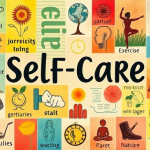
The Role of Music in Self-Care: How to Build Your Healing Playlist
Benefits of Incorporating Music into Your Self-Care Routine
Music has a remarkable ability to influence our emotions and overall well-being, making it a powerful tool for self-care. Incorporating music into your daily routine can provide a sense of peace and relaxation, helping to reduce stress and anxiety. The soothing melodies and uplifting rhythms can act as a form of therapy, offering a much-needed escape from the chaos of everyday life.
Moreover, music has the unique ability to evoke memories and emotions, allowing individuals to connect with their inner selves on a deeper level. By listening to music that resonates with your personal experiences and feelings, you can gain insight into your emotional needs and find solace in the healing power of sound. Whether it’s a calming instrumental piece or an energizing upbeat track, music can be a versatile and effective tool for enhancing self-care practices.
Identifying Your Emotional Needs Before Creating Your Playlist
When it comes to incorporating music into your self-care routine, it’s essential to start by identifying your emotional needs. Emotions play a significant role in our daily lives and can greatly impact our well-being. Before creating your playlist, take a moment to reflect on how you’re feeling and what emotions you may need to address or enhance. Are you seeking relaxation and calmness, motivation and empowerment, or simply a way to express and process your emotions?
Understanding your emotional needs can guide you in selecting the right music that resonates with your current state of mind. Whether you’re looking to uplift your spirits, find solace during difficult times, or manage stress and anxiety, choosing songs that align with your emotional needs can enhance the effectiveness of your self-care routine. By being mindful of your emotions and selecting music that supports your well-being, you can create a playlist that nurtures your mental and emotional health.
Exploring Different Genres and Styles for Healing Music
When it comes to incorporating music into your self-care routine, exploring different genres and styles can have a profound impact on enhancing your overall well-being. The beauty of music lies in its ability to evoke emotions, memories, and sensations, making it a powerful tool for healing. Whether you prefer soothing classical melodies, rhythmic world beats, or soulful jazz tunes, each genre offers a unique therapeutic quality that can cater to your specific emotional needs.
By diversifying your musical repertoire, you open yourself up to a world of sonic possibilities that can help you navigate through difficult emotions, calm your mind, and uplift your spirit. Experimenting with various genres and styles allows you to discover what resonates with you on a deep level, providing a personalized soundtrack for your self-care journey. From melodic instrumental pieces to soul-stirring vocals, immersing yourself in the diverse landscape of healing music can offer solace, comfort, and inspiration in times of need.
Utilizing Music to Manage Stress and Anxiety
Listening to music can be a powerful tool for managing stress and anxiety. The soothing melodies and rhythms of music can help calm the mind and relax the body, providing a sense of relief from the pressures of daily life. Whether it’s classical music, ambient sounds, or your favorite songs, finding music that resonates with you can be a helpful way to unwind and destress.
Music has the ability to shift our mood and emotions, making it a valuable resource for coping with stress and anxiety. By creating a playlist of songs that evoke feelings of peace and contentment, you can use music as a form of self-care to combat overwhelming emotions. Taking the time to listen to music that makes you feel grounded and at ease can be a simple yet effective way to manage stress and anxiety in your daily life.
Creating a Playlist for Relaxation and Meditation
When creating a playlist for relaxation and meditation, it’s important to choose music that soothes the mind and promotes a sense of calmness. Instrumental songs with soft melodies or nature sounds such as flowing water or birds chirping can help create a peaceful ambiance for relaxation. Look for tracks that have a slow tempo and gentle rhythm to aid in slowing down your breathing and heart rate, allowing your body to unwind and destress.
Additionally, incorporating music with a repetitive or minimalist structure can help you focus your mind during meditation sessions. Opt for ambient music or tracks with simple, repetitive patterns that can serve as a grounding force for your practice. The goal is to create a tranquil atmosphere that facilitates a deep sense of relaxation and inner peace, allowing you to disconnect from the outside world and fully immerse yourself in the present moment.
Incorporating Uplifting and Empowering Songs for Motivation
When it comes to boosting your motivation and inner drive, music can be a powerful tool to uplift and empower you. Whether you’re working towards a personal goal, tackling a challenging project, or simply needing a pick-me-up, incorporating uplifting and empowering songs into your daily routine can make a significant difference in your mindset and energy levels. The right song has the ability to inspire and motivate you, helping you stay focused and positive even in the face of obstacles or setbacks.
Choose songs with lyrics that resonate with you on a personal level and melodies that lift your spirits. Upbeat rhythms, positive affirmations, and empowering messages can all contribute to creating a playlist that keeps you motivated and energized throughout the day. Whether you prefer pop, rock, hip-hop, or any other genre, the key is to select songs that speak to your soul and encourage you to keep pushing forward towards your goals and dreams. By surrounding yourself with music that empowers you, you can cultivate a mindset of resilience and determination that propels you towards success.
Using Music to Express and Process Emotions
Music has a unique ability to tap into our deepest emotions and help us express feelings that may be difficult to articulate verbally. When we listen to music that resonates with our emotions, whether it’s a melancholic ballad or an upbeat anthem, we can find solace in the melodies and lyrics that speak to our hearts. The cathartic nature of music allows us to release pent-up emotions and process complex feelings in a way that is both healing and empowering. By creating a playlist that reflects our emotional journey, we can navigate through various states of being and find a sense of comfort in the harmonies that mirror our innermost thoughts and emotions.
Moreover, music serves as a powerful tool for reflecting on our emotions and gaining insight into our inner world. Whether we turn to nostalgic tunes that bring back memories or discover new songs that resonate with our current emotional state, music can help us connect with our feelings on a deeper level. The act of immersing ourselves in music allows us to explore the nuances of our emotions, from joy and love to sadness and grief, in a safe and supportive environment. By actively engaging with music as a form of emotional expression, we can cultivate a greater sense of self-awareness and develop a deeper understanding of our innermost selves.
Finding Comfort and Solace in Music During Difficult Times
During difficult times, music can serve as a comforting companion, offering solace and understanding when words may fall short. The emotive power of music has a unique way of resonating with our innermost feelings, providing a sense of connection and empathy that can be incredibly soothing during times of struggle. Whether it’s the gentle melody of a piano piece, the raw emotion of a heartfelt ballad, or the uplifting rhythm of a motivational anthem, music has the ability to envelop us in a cocoon of warmth and understanding, reminding us that we are not alone in our challenges.
In the midst of chaos and uncertainty, music has the remarkable ability to transport us to a place of tranquility and peace, even if just for a moment. The melodies and lyrics can act as a form of escape, allowing us to temporarily set aside our worries and find solace in the beauty of sound. By immersing ourselves in music that resonates with our emotions, we can create a safe haven where we can explore our feelings, find comfort, and emerge with a renewed sense of strength and resilience to face the challenges ahead.
Exploring the Connection Between Music and Mental Health
Music has long been recognized for its powerful impact on mental health. Research has shown that listening to music can have a profound effect on our emotions and well-being. Different types of music can evoke varying moods and feelings, providing an avenue for expression and release. For individuals struggling with anxiety, depression, or other mental health challenges, music can offer a sense of comfort and relief.
Moreover, the act of creating or engaging with music can be a form of therapy in itself. Writing lyrics, playing an instrument, or even simply singing along to a favorite song can be cathartic and healing. Music has the ability to connect with us on a deep emotional level, resonating with our innermost thoughts and feelings. This connection can help individuals process emotions, gain insight into their mental state, and find solace during difficult times.
Building a Playlist for Self-Reflection and Mindfulness
When building a playlist for self-reflection and mindfulness, it’s essential to select music that helps you tune into your inner thoughts and emotions. Consider adding instrumental pieces with soothing melodies or ambient sounds that create a tranquil atmosphere conducive to introspection. Music with minimal lyrics or repetitive patterns can also aid in clearing the mind and promoting a sense of calmness.
Incorporating tracks that resonate with your inner self and evoke a sense of mindfulness can enhance the reflective experience. Look for songs that connect with your values, beliefs, or personal experiences, allowing you to delve deeper into your thoughts and emotions. By curating a playlist that fosters self-awareness and introspection, you can create a meaningful space for contemplation and mindfulness in your daily routine.
• Instrumental pieces with soothing melodies
• Ambient sounds for a tranquil atmosphere
• Music with minimal lyrics or repetitive patterns
• Tracks that resonate with inner self and evoke mindfulness
• Songs that connect with values, beliefs, or personal experiences
By selecting music thoughtfully and intentionally, you can build a playlist that serves as a powerful tool for self-reflection and mindfulness. Whether you listen to it during moments of solitude, meditation, or simply as background music throughout your day, this playlist can help you stay present, connected to your emotions, and focused on personal growth. Take the time to explore different genres and artists to find the perfect combination of songs that speak to your soul and support your journey towards greater self-awareness.
Utilizing Music for Physical Healing and Pain Management
Music has been recognized for its potential to aid in physical healing and pain management. Research suggests that listening to calming music can help reduce perceived pain levels and improve overall well-being. The soothing melodies and rhythms of certain songs have the ability to distract the mind from discomfort, allowing individuals to focus on the music instead of the pain they may be experiencing. This distraction can create a more positive and relaxed state, which may contribute to a decrease in physical discomfort.
Moreover, music has the power to trigger the release of endorphins, which are natural pain relievers produced by the body. By listening to music that evokes positive emotions and feelings, individuals may experience a boost in their mood and a reduction in stress levels, both of which can directly impact how they perceive and manage physical pain. The combination of emotional benefits and distraction techniques through music can offer a holistic approach to addressing pain management and promoting physical healing.
Creating a Playlist for Better Sleep and Relaxation
Research has shown that creating a playlist specifically tailored for better sleep and relaxation can significantly improve the quality of your rest. When selecting songs for your playlist, opt for calming and soothing melodies with slow tempos to help ease your mind and body into a state of relaxation. Instrumental music, nature sounds, and ambient tunes are popular choices for promoting tranquility and aiding in falling asleep faster.
Incorporating repetitive and gentle rhythms in your sleep playlist can help regulate your breathing patterns and lower your heart rate, signaling to your body that it’s time to unwind and drift off to sleep. Avoid including songs with sudden loud noises or intense beats that may disrupt your sleep cycle. By curating a playlist that promotes serenity and calmness, you can create a peaceful environment that encourages deep and restful sleep.
Exploring Binaural Beats and Sound Therapy for Self-Care
Binaural beats and sound therapy have gained popularity in the realm of self-care for their potential to promote relaxation and mental well-being. Binaural beats involve playing two slightly different frequencies in each ear, creating a perceived third sound that can purportedly induce a desired state of mind, such as relaxation or focus. This auditory phenomenon is believed to influence brainwave activity, potentially leading to altered states of consciousness that can aid in reducing stress and anxiety.
Sound therapy, on the other hand, utilizes various calming sounds and frequencies to help individuals achieve a sense of peace and tranquility. From nature sounds like ocean waves or bird chirping to specific healing frequencies, sound therapy aims to create a harmonious environment for relaxation and mental clarity. Many people find solace in the gentle vibrations and soothing tones of sound therapy, using it as a form of self-care to unwind and rejuvenate amidst the demands of daily life.
Incorporating Nature Sounds and Instrumental Music for Calmness
Nature sounds and instrumental music have long been known for their ability to induce a sense of calmness and tranquility in individuals. The soothing sounds of running water, chirping birds, or gentle rain can transport us to a peaceful state of mind, helping to reduce stress and anxiety. Similarly, instrumental music, whether it be classical, ambient, or acoustic, carries a melody that can evoke feelings of relaxation and serenity.
Incorporating nature sounds and instrumental music into your daily routine can create a peaceful environment that promotes inner peace and mindfulness. By listening to these calming sounds while engaging in activities like meditation, yoga, or simply unwinding after a long day, you can effectively enhance your self-care practice and improve your overall well-being. The harmonious blend of nature sounds and instrumental music provides a harmonizing effect on both the mind and body, allowing you to find solace and tranquility in the midst of life’s daily challenges.
Using Music as a Form of Self-Expression and Creativity
Music serves as a powerful medium through which individuals can express their innermost thoughts, emotions, and experiences. Through the creation and appreciation of music, people can tap into a realm of creativity that allows for genuine self-expression. Whether composing original pieces, improvising melodies, or simply listening to music that resonates with their feelings, individuals have the opportunity to communicate complex sentiments that may be challenging to articulate through words alone. This creative outlet not only fosters a deeper understanding of one’s inner world but also facilitates a sense of connection with others who may share similar experiences or emotions.
Moreover, music offers a unique platform for individuals to explore and broaden their creative capacities. Engaging with music as a form of self-expression invites individuals to experiment with different sounds, rhythms, and harmonies, allowing them to push the boundaries of their creativity and discover new avenues for self-exploration. By embracing music as a creative tool, individuals can unlock hidden aspects of their personality, confront unresolved emotions, and cultivate a greater sense of self-awareness. Whether through singing, playing an instrument, or composing music, the act of self-expression through music can be a transformative and enriching journey of personal discovery and growth.
Building a Playlist for Self-Discovery and Personal Growth
Music has the power to serve as a mirror to our inner selves, allowing us to delve deep into our emotions, thoughts, and aspirations. When building a playlist for self-discovery and personal growth, it is essential to select songs that resonate with different aspects of your identity and journey. Consider incorporating tracks that evoke introspection, inspire contemplation, or encourage you to embrace new perspectives and possibilities. By curating a collection of songs that reflect your values, goals, and evolving sense of self, you can use music as a tool for introspective exploration and emotional connection.
In addition to songs that resonate with your personal narrative, seek out music that challenges you to step outside your comfort zone and explore unfamiliar territories. Integrate tracks that stretch your boundaries, introduce you to fresh genres or experimental sounds, and spark curiosity and imagination. By broadening your musical horizons and embracing diversity in your playlist, you can cultivate a sense of openness, adaptability, and growth mindset in your journey of self-discovery. Let the melodies and lyrics guide you on a voyage of exploration and transformation, uncovering hidden layers of your being and propelling you towards self-awareness and personal development.
Exploring the Power of Lyrics and Songwriting for Healing
Lyrics and songwriting have a profound impact on our emotional well-being and can serve as powerful tools for healing. The process of writing and expressing ourselves through music allows us to tap into our deepest emotions and experiences, providing a cathartic release and an avenue for self-reflection. Whether we are penning our own lyrics or immersing ourselves in the poignant words of others, the act of engaging with meaningful songwriting can help us navigate complex feelings and find solace in moments of turmoil.
Music has the ability to articulate what words alone cannot express, offering a language of the soul that resonates deeply within us. Through the power of lyrics and songwriting, we can connect with our innermost thoughts and emotions, uncovering hidden truths and gaining insight into our own inner world. Whether it is through writing our own songs or simply listening to the profound lyrics of others, music has a way of touching our hearts and helping us navigate the complexities of life with a sense of healing and empowerment.
Utilizing Music for Emotional Release and Catharsis
Music has a unique way of tapping into our emotions and providing a channel for release and catharsis. When we are feeling overwhelmed, sad, or frustrated, turning to music can offer a sense of comfort and understanding. The lyrics and melodies can resonate with our innermost feelings, allowing us to express and process our emotions in a healthy way.
Many people find solace in creating or listening to playlists that reflect their current emotional state, allowing for a release of pent-up feelings. The act of immersing oneself in music can be a form of self-care, offering a safe space to let go and heal. Whether it’s belting out the lyrics of a powerful song or simply sitting in silence and absorbing the music, the therapeutic nature of music for emotional release and catharsis is undeniable.
Incorporating Music into Your Daily Self-Care Routine
Listening to music can be a simple yet powerful way to enhance your daily self-care routine. Music has the ability to uplift your mood, reduce stress, and provide a sense of comfort and relaxation. By incorporating your favorite songs or soothing melodies into your day, you can create a positive atmosphere that promotes well-being and inner peace.
Whether you start your morning with upbeat tunes to energize you for the day ahead, or wind down in the evening with calming instrumental music to relax your mind and body, music can cater to your emotional needs throughout the day. By making music a consistent part of your self-care regimen, you can find moments of joy and solace amidst the hustle and bustle of everyday life.
Finding Joy and Happiness Through Music in Self-Care.
In moments of joy and happiness, music can be a powerful companion in your self-care journey. The uplifting melodies and rhythms can elevate your spirits, whisking you away to a place of pure bliss and contentment. Whether you find solace in soothing classical tunes or groove to upbeat pop tracks, the right music has the ability to uplift your mood and infuse a sense of joy into your day.
Immerse yourself in the magic of music by creating a playlist filled with songs that spark joy and bring a smile to your face. Let the music transport you to a place where worries fade away, and you can bask in the simple pleasure of a sweet melody. Whether you dance around your room, sing along at the top of your lungs, or simply close your eyes and let the music wash over you, embracing the joy that music brings can be a delightful addition to your self-care routine.











